Pelvic Health Physical Therapy Level 1 Combined
PH1 Combined
The PH1 (Pelvic Health Physical Therapy Level 1) consists of two separate courses, PH1 Webinar and PH1 Lab, however, the Academy also offers an option where participants can complete both lectures and labs in a PH1 Combined course. In order to fully complete PH1, one must either complete the PH1 Combined course or complete PH1 Webinar and PH1 lab course.
In this in-person course, physical therapy professionals will learn and apply basic skills necessary to treat patients with pelvic health dysfunction with primary emphasis on underactive pelvic floor muscle conditions. Course participants will work in groups of 2-3 as both clinicians and patients. Course participants of all genders may be present in the room during the completion of examinations.
Concepts covered in the PH1 Webinar include pelvic girdle anatomy, physiology of micturition, dysfunctions of the lower urinary tract, pelvic muscle dysfunction, patient history examination, testing and treatment interventions for underactive pelvic floor muscle conditions, urogynecologic surgeries, medication considerations, prevention of pelvic floor dysfunction, and documentation.
Topics Covered
- Pelvic Organ Prolapse
- Pelvic Floor Muscle
- Behavioral Interventions
- Biofeedback
- Estim/Modalities
- Pelvic Pain
- Anatomy & Physiology
- Physiology of micturition
- Urinary Incontinence
- Trauma-Informed Care
- Risk Management
- Urogynecologic surgeries
- Medication
Please carefully review each course’s individual description, objectives, time-ordered agenda, and lab requirements before registering.
CAPP-Pelvic Affiliation
This course is a required course for those pursuing the Certificate of Advanced Practice in Physical Therapy in Pelvic Health (CAPP-Pelvic). To be eligible for the CAPP program, you must complete all required courses directly through the Academy of Pelvic Health Physical Therapy. Prerequisite courses completed outside the Academy will not meet the eligibility requirements. Participation in this course does not obligate you to pursue the CAPP program. It can be taken independently of the certification pathway if so desired.
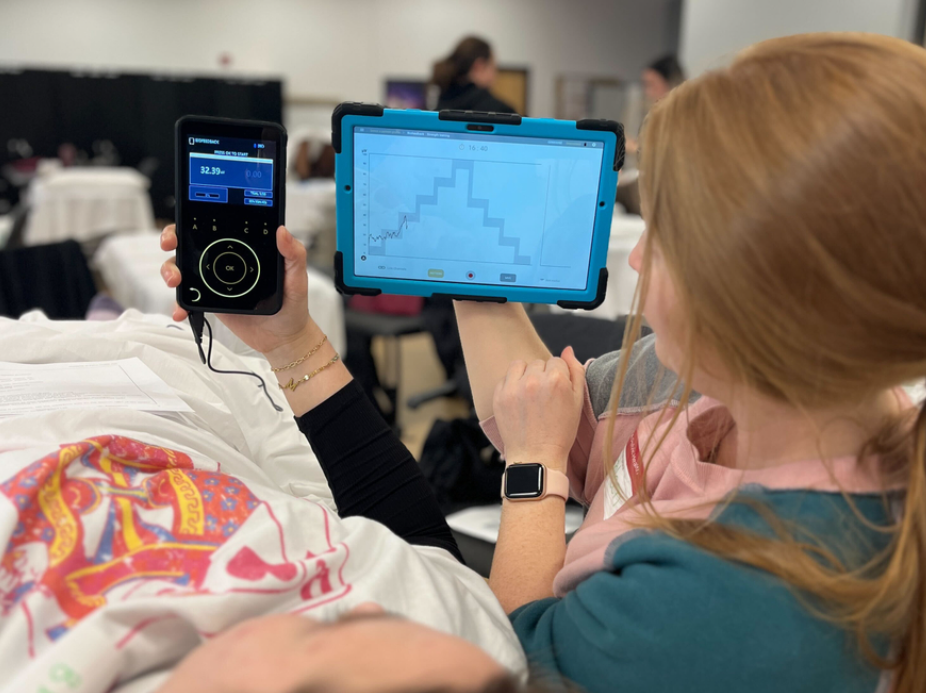
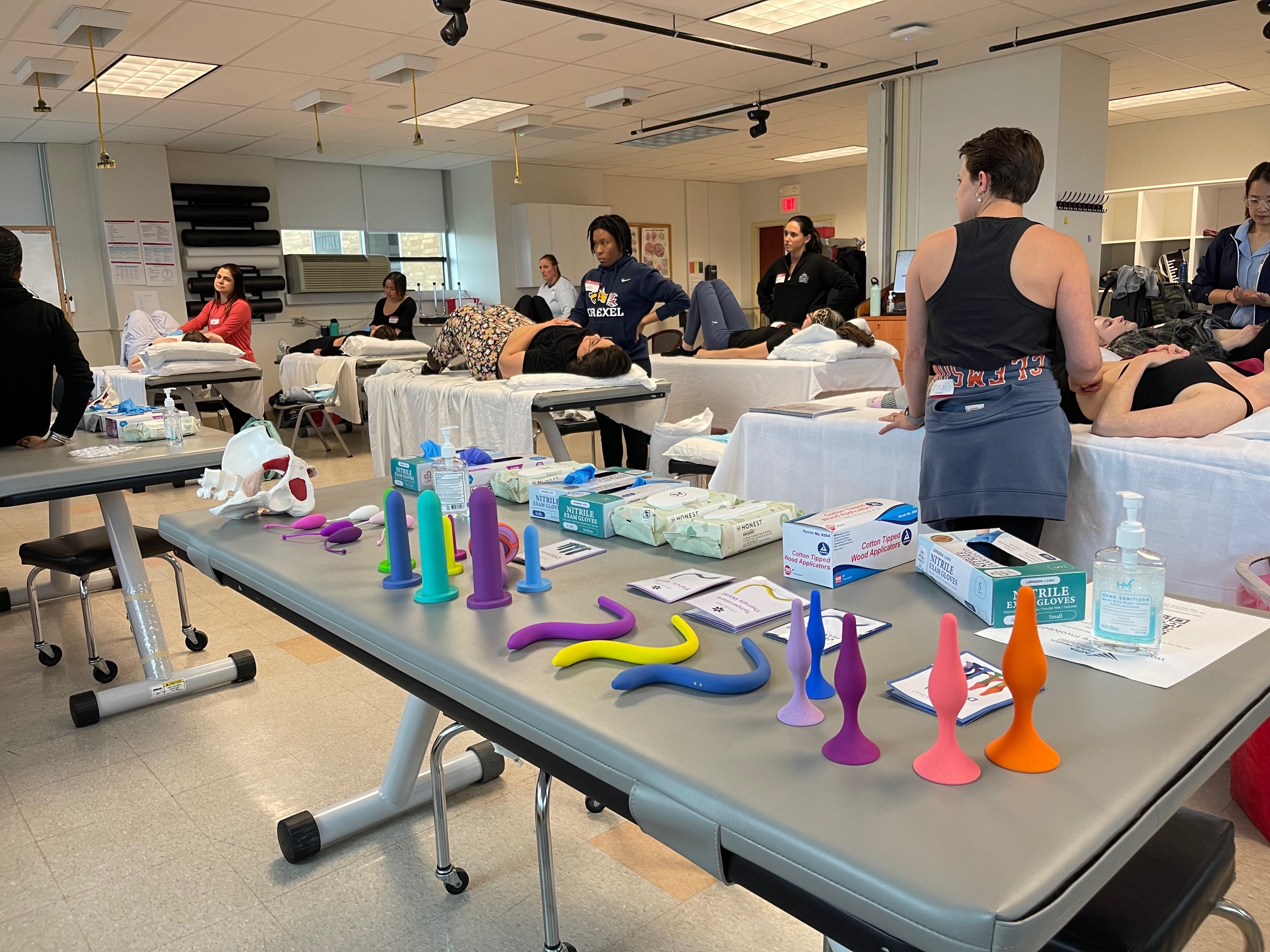
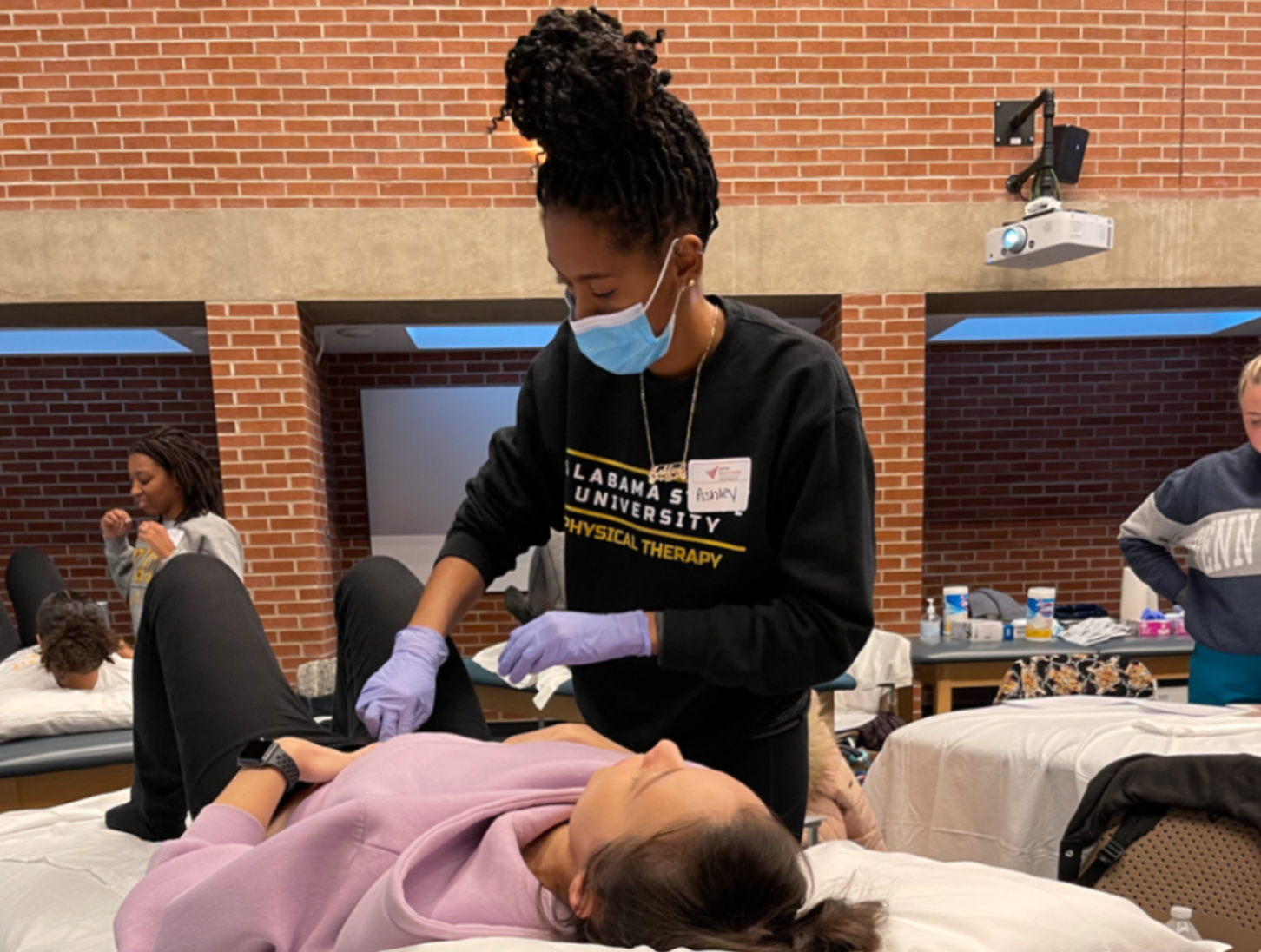
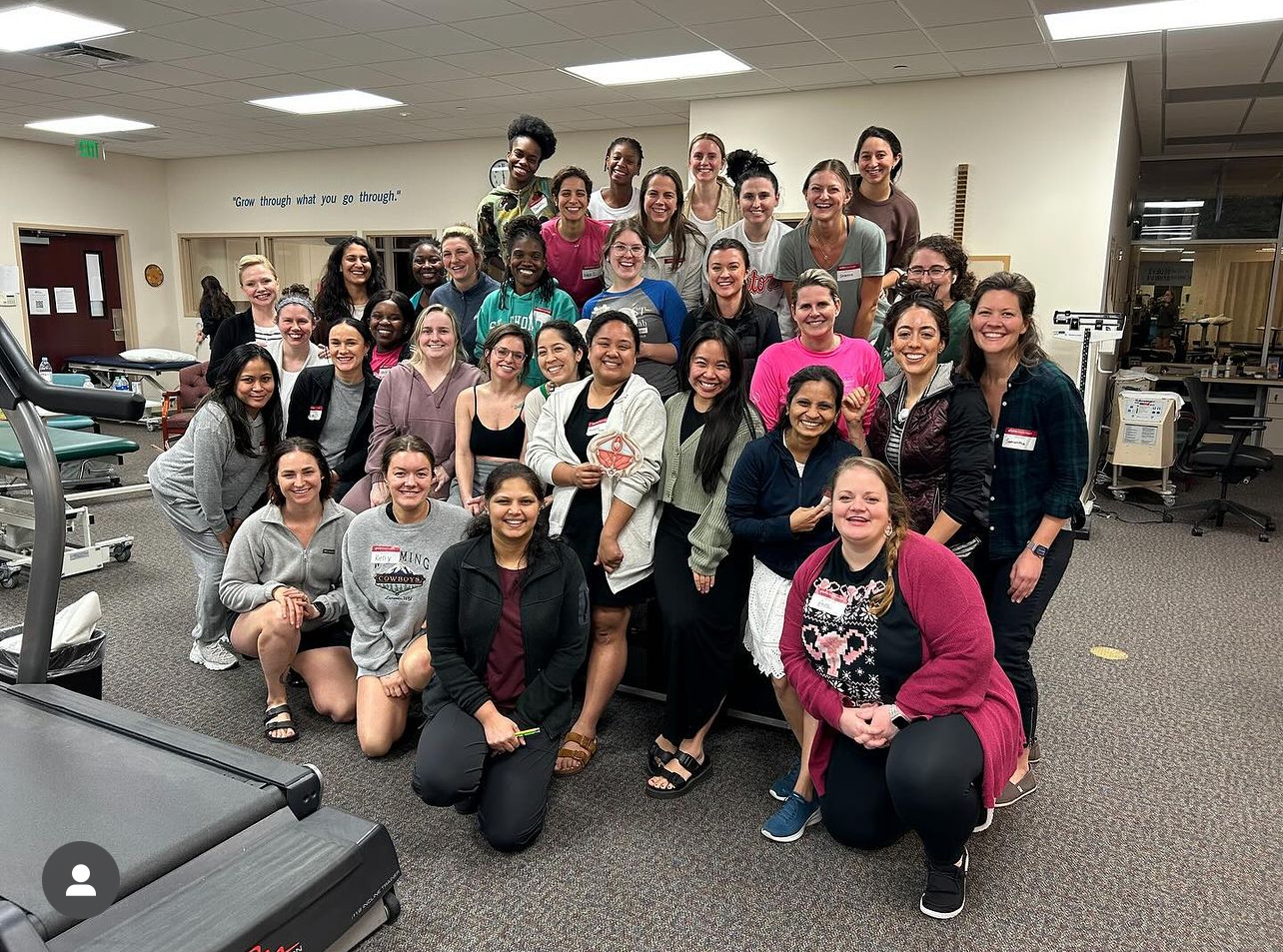
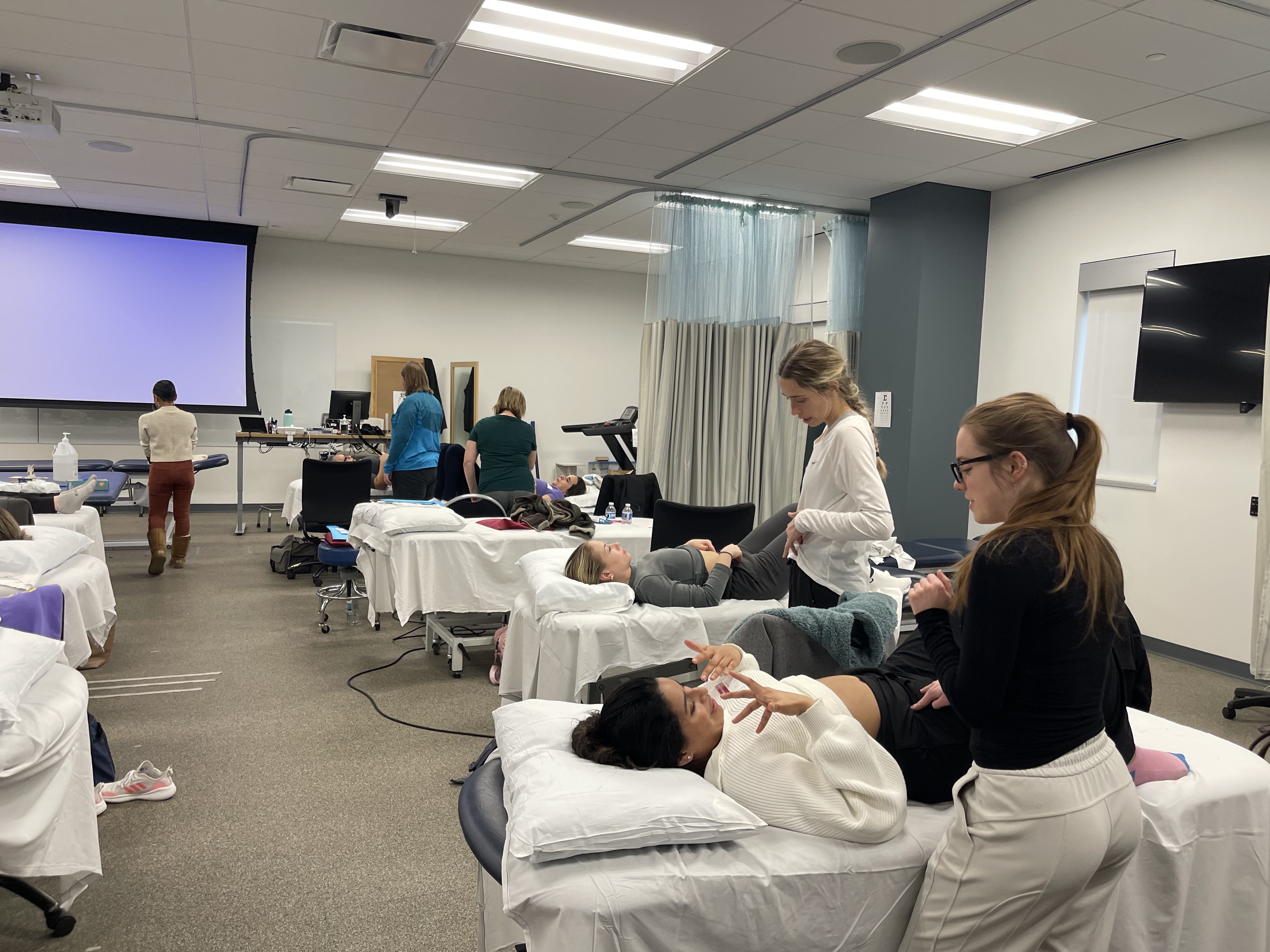

Learning Objectives
Upon completion of this course, participants will be able to:
Upon completion of the course, participants will be able to:
Examination / Evaluation
- Identify and examine the anatomy of the pelvic girdle
- Describe the function of the lower urinary tract and female pelvic organs.
- Demonstrate proper infection control techniques involved in pelvic floor muscle examination.
- Perform an external evaluation of the female genitalia verbally identifying bones, ligaments,muscles and other structures.
- Perform an internal pelvic examination identifying muscles, ligaments, bony prominences with identification of pelvic floor muscle origins and insertions.
- Demonstrate proper technique in testing muscle strength of the levator ani muscles.
- Demonstrate proper technique in testing for pelvic organ prolapse.
- Demonstrate proper use of handheld EMG biofeedback to assess pelvic floor musculature.
Diagnosis / Prognosis
- Differentiate between under active pelvic floor muscles and overactive pelvic floor muscles.
- Demonstrate an understanding of bladder tests and measurements (bladder diary, urodynamic testing, pad testing, etc.) that are used in the process of differential diagnosis.
- Demonstrate the ability to compose a plan of care including functional goals, prognosis and length of care for the patient with under active pelvic floor conditions.
- Explain red flags related to treatment of the pelvic floor and understand when to refer to another healthcare provider.
- Understand urogynecologic surgeries and their effect on prognosis and pelvic floor muscle dysfunction.
- Demonstrate understanding of various medications and their effects on the bowel and bladder and identify how that may affect prognosis for a patient with pelvic floor muscle dysfunction.
Intervention
- Explain the effects of pelvic floor under activity and proper technique of pelvic muscle exercises for rehabilitative purposes.
- Explain the relationship between the abdominal muscles and the pelvic floor muscles as they relate to activities of daily living.
- Describe the various interventions available to strengthen the muscles of the patient with an under active pelvic floor and clinically reason when and why the various interventions might be used.
- Demonstrate proper use of a handheld pelvic floor muscle electrical stimulation unit and explain its appropriate uses for a patient with pelvic floor muscle dysfunction.
- Describe techniques that can be used to train (retrain) the bladder and when each intervention might be used.
Requirements
ELIGIBILITY REQUIREMENT
- Licensed Physical Therapist (PT)
- Licensed Physical Therapist Assistant (PTA)
- 2nd Year Physical Therapy Student (SPT)
- 3rd Year Physical Therapy Student (SPT)
- 2nd Year Physical Therapy Assistant Student (SPTA)
- 3rd Year Physical Therapy Assistant Student (SPTA)
- No other professional types are permitted for this course. No exceptions will be made
PREREQUISITES
- None.
- We recommend students have some orthopedic and musculoskeletal coursework in their curriculum prior to attending the course.
LAB PARTICIPATION
The APTA Academy of Pelvic Health welcomes all SPTs, PTAs and PTs to participate in our courses regardless of gender identity, medical condition or pelvic anatomy. For all pelvic health labs, attendees are expected to be both the examining “therapist” and “patient” participant. If a participant has a pre-existing medical condition that prevents them from having an examination (see Medical Model Guidelines) or lacks the anatomical components examined for the specific lab, they are encouraged – but not required – to bring a medical model to serve as the ‘patient’ during labs. Bringing a model will provide the most hands-on experience, but alternative accommodations will be made for those who do not bring one. Accommodations may include participating in groups of three.
We do request that the participant fill out a form so that we are aware and can plan accommodations as needed.
- Report Medical Conditions | Please fill out this form only if you have medical conditions to disclose.
- Medical Model Form | Medical Model Guidelines
ATTENDANCE & PARTICIPATION REQUIREMENTS FOR MEDICAL MODELS
-
A medical model must sign a Model Participation Consent Form linked below. Please share this link below with your medical model. All Medical Model forms must be completed AT LEAST 7 BUSINESS DAYS PRIOR TO THE COURSE:
-
A medical model should arrive 15 minutes before the scheduled lab begins
-
A medical model is only present during examination labs
-
A medical model that is a licensed physical therapist, physical therapist assistant, or physical therapy student may remain for the entirety of the course if registered to audit
-
The medical model/auditor will not participate as the “therapist”
-
-
-
It is up to the medical model whether they choose to participate with other ‘therapists’, or whether they want to only participate with their participant.
SPECIAL ACCOMMODATIONS
If you require special accommodations to fully participate in this upcoming course, please send us a message to discuss your needs and make necessary arrangements.
Please adhere to the medical model guidelines below when bringing in a medical model. The model must be present for all labs and skill checks. If you are bringing a medical model OR are opting out of participating as a ‘patient’ in internal labs for the following reasons, please fill out appropriate forms ASAP and inform the Academy office so that instructors are informed BEFORE the lab so that we can ensure any additional accommodations can be planned.
Medical Model Form | Medical Model Guidelines
CONDITIONS THAT MAY NECESSITATE USE OF A MODEL OR OPTING OUT OF INTERNAL PELVIC EXAM LAB PARTICIPATION AS A ‘PATIENT’
- A participant who is experiencing an active exacerbation of an abdominopelvic medical condition (e.g. inflammatory bowel disease) or dermatologic condition (e.g.. lichens sclerosis), that would prevent an exam:
- A participant with a history of sexual abuse or trauma
- The Academy is mindful of how participation as a “patient” in examinations might impact a participant who has a history of sexual abuse or trauma
- Some participants may experience an emotional response as the “patient”
- It is the participant’s decision to disclose any history to the instructor as necessary; any information shared remains confidential
- A participant that currently has or history of pelvic pain or painful sexual activity
- Some participants may experience physical discomfort and/or an emotional response
- If you have a history of pelvic pain or painful sexual activity but choose to
participate as the “patient” in labs, you may choose to disclose the current
or history of pelvic pain to the faculty
- Confirmed or suspected pregnancy
- You must submit a signed medical release from your medical provider that
allows you to participate in all examinations
- You must submit a signed medical release from your medical provider that
- A participant who has never had an internal gynecological examination
- Social, cultural, or religious practices
CONDITIONS THAT REQUIRE USE OF A MEDICAL MODEL OR OPTING OUT OF INTERNAL PELVIC EXAM LAB PARTICIPATION AS A 'PATIENT'
- Recent surgical procedure without medical clearance
- Less than six (6) weeks postpartum
- Active urinary tract, vaginal, or rectal infections
- Active lesions from sexually transmitted infections
- Indwelling catheter
- The participant lacks the anatomical components for examination
THE FOLLOWING CONDITION DOES NOT REQUIRE A MEDICAL MODEL
-
Participants who are actively menstruating
-
A menstrual disc, if desired, will be provided to participants to enable internal vaginal examinations
-
FILL OUT THIS FORM BEFORE THE LAB IF YOU INTEND TO BRING A MEDICAL MODEL OR OPTING OUT AS ‘PATIENT’ FOR THE LAB
If a participant chooses to use a medical model OR are planning to opt out of being a ‘patient’ based on the reasons listed above, you MUST inform the Academy office at hello@aptapelvichealth.org or using the attached form that a model will be used OR you are opting out and reason.
WHAT TO BRING
- Comfortable, loose-fitting clothing that is comfortable for you to move in during the lab activities (some attendees bring a sweater or pullover as temperatures in the auditoriums and classrooms can often fluctuate)
- Laptop and charger (if you wish to take notes electronically; printed lab manuals will be provided by the Academy)
- Snacks and refreshments (the Academy provides some light refreshments but you are welcome to bring your own as well)
- Pencils and/or pens (useful for lab activities and worksheet activities)
- Hair ties (if you have long hair, we recommend for you to tie it in a ponytail during the lab activities)
- Nail filer (due to the physical interaction between attendees, we recommend for you to file your nails prior to lab activities)
WHAT ELSE YOU SHOULD KNOW
- Course participants of all genders may be present in the room during the completion of examinations.
- Appropriate draping and positioning will be performed; however, visual assessment and palpation of external and internal anatomy are required for safe examination practice.
- External and internal examinations performed in the course pose no greater risk than a standard gynecologic or colorectal examination.
ATTENDANCE REQUIREMENT
Attendees must be present throughout the duration of the course. Contact hours will be forfeited and the attendee will be dismissed if the attendee:
- Misses two (2) or more lecture hours
- Misses any part of the Case Study Presentation and related group activities
To advance to the next course level, the attendee who missed the above will have to retake the course at her/his/their own expense.
Should extenuating circumstances arise, it is the responsibility of the participant to notify a course faculty member of the need to leave. Consideration for course completion will be made on a case-by-case basis.
CEU APPROVAL
Unless otherwise noted in the course description, the Academy of Pelvic Health Physical Therapy does not independently seek approval for course Continuing Education Unit (CEU) numbers in each state. It is the responsibility of each participant to submit their own CEU applications within their respective states. We are committed to assisting you in obtaining and supplying any required documentation for your CEU application. Historically, our course participants have consistently encountered no difficulties in securing approval for continuing education credits (CEUs) upon submission to their state's board.
Testimonials
"Very comprehensive and offered a lot of tools that were easy to apply. The lab activities were very educational and helpful in my learning as I value hands-on practice."
"I learned more than what I thought and a GREAT emphasis placed on more than the internal portion of exam, I really enjoyed all of the material we covered and the way the course was set up with learning material in the morning and doing lab in the afternoon."
"I thoroughly enjoyed every minute of it. I felt very comfortable especially from traveling across the country for this course. I have signed up for level 2 pain and I am excited to grow my career with all of these levels."
"Really enjoyed the course."
"The course was a great foundation for my pelvic health clinical rotation."
"Class was very informative and the instructors were very attentive to each student in class, really enjoyed this course."
"The course was very informational, enlightening, and provided me with the skills required to commence pelvic health therapy as a PT."
"I thought the instructors were incredible. They were very knowledgeable, and they kept things light. It was really nice to hear their experiences and have their support. They taught the material very well. You could see how passionate they were about the material, and that's always contagious."
"This may be the best continuing education class that I have taken. It was so well organized and I feel like I left the course with skills ready to use the next day in the clinic. There was enough repetition of material through lecture and practice that I was able to actually integrate the material throughout the weekend and with the course prerequisites that I didn't feel like I was overwhelmed. I can't wait for my next course."
"Great information! The instructors were highly knowledgeable and personable when completing the course. Overall the experience was wonderful and I am so glad to have gotten the chance to participate. Great experience!!!"
"I really enjoyed the course. It was thorough and the instructors really brought out the material in an engaging way.
All three teachers were incredibly patient and attentive. They gave great insight on the field of physical therapy and tremendous wisdom regarding women's health/pelvic floor PT. I learned an incredible amount and always felt like I was in a safe and nurturing environment with them. Course sequence was sensible and strategic and lab was extremely useful."
"I really enjoyed everything about the course. I feel that it was well organized and well led, with great discussions and perspectives."
"I thought this class was very well planned and the days were structured well. I feel like I learned a lot and was able to retain information."
"I really enjoyed the built in time for questions as well as the opportunity for conversation throughout the lecture time."
"I feel I made the best choice by choosing APTA for pelvic health courses. The syllabus was well organized and you provided all the material we needed. Starting from the anatomy to conditions, examination, treatment and lab, everything was excellent. i enjoyed all the days of the course and the content. Can not wait till I register for PH2 PH3 and getting my CAPP."
"This course was excellent! All three instructors were incredibly helpful. I really appreciated how much they seemed to care about us learning the skills and how patient they were with everyone."
"First of all, Thank you for making this class lively and educational. I learned so much and truly feel ready to start treating!
"The course was very thorough and involved a significant amount of information covered in 3 days. Although it was intense, the environment was warm and relaxed which eliminated the stress level I was experiencing prior to the course in the beginning. I learned a lot and was able to retain quite a bit as well, eager to carry this knowledge to my treatment setting. I do look forward to PH2 in the near future."
"Overall I definitely give the course material and presentation a 5/5!"
"I was super impressed with all 3 instructors! Our group had a lot of questions and they patiently answered all of our questions and had others jump in to respond as needed. They seemed to work really well together. They made me feel comfortable during the lab portion and I felt like I was able to ask for guidance and they were very supportive as I was learning the new techniques. I love how they added humor in and also gave a lot of sayings to help remember concepts...super helpful! I feel like the lab/ hands on portion was invaluable.
"I thought the material presented was very comprehensive and very well presented. Overall I thought this was an awesome course and am looking forward to PH2."
"The hands on and palpation/ assessment skills were well explained and I feel competent in performing this pelvic exam."
Schedule
View Schedule
Already registered? Access your course materials!
Access the Learning Center
Helpful Links- Lab Preparation Tips
- Frequently Asked Questions
- Event Registration Terms & Conditions
- Privacy Policy
- Sponsors & Advertisers
- Cancel My Registration or Transfer to Another Course
- Request a Past Course Certificate
- Sign Up for New Course Email Alerts
Lab Participation
Please watch these helpful videos to prepare yourself for the lab course.
Lab Expectations
Using a Medical Model in Lab
Self-Care During Lab
How Lab Works
CAPP-Pelvic Certification Pathway
Pricing
Please note that early-bird rates expire 30 days prior to the scheduled course. Want to qualify for member pricing? Join the Academy today!
| Type | Early-Bird | Regular |
|---|---|---|
| PT Member | $800 | $875 |
| PTA Member | $605 | $680 |
| SPT Member | $605 | $680 |
| Non-Member | $920 | $995 |
Helpful Links
- Discount Promotions
- Scholarship Opportunities
- Employer Justification Letter Template
- Registration Cancellation Policy




